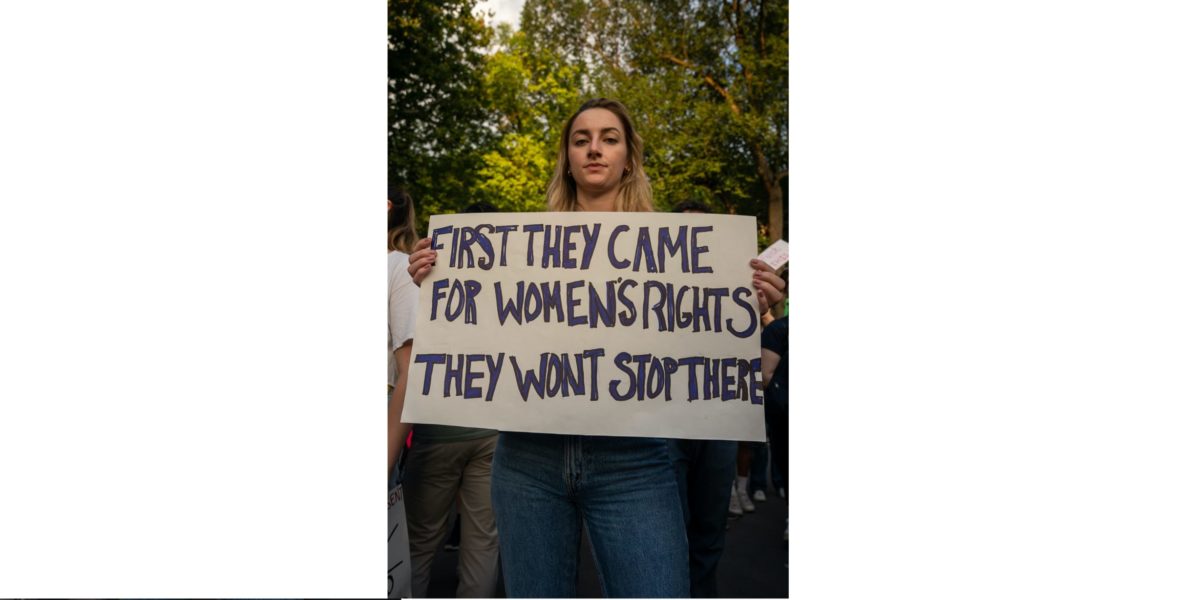With the recent overturn of Roe v. Wade in the United States, we’ve seen an increase in public discourse on women’s rights, not only in the U.S. but Canada too. The recent SCOTUS decision impacts us all – ciswomen and cismen, transgender, non-binary, and two-spirit people, or any person who may identify along the gender diverse spectrum. And while the topic may be polarizing, politicized and simply uncomfortable, it is a topic that should matter to all genders. It is a decision that affects us all.
Access to safe abortion should be a right for all. The right to choose is a matter of basic healthcare. Many who find themselves making this extremely emotional decision should not be left with the remaining hurdle that prevents their ability to access abortion in a safe and caring environment.
Enforcing choice enforces the class system
Allowing this decision to be left in the hands of politicians and lawmakers is the fast track to further marginalize specific aspects of healthcare. Many pregnant people and their partners come to this decision because it is what is the best for themselves and their situations. Often, the largest deciding factor when exercising the right to choose is socioeconomic reasons. In fact, 30 per cent of women in Canada will have an abortion in their lives.
Making this choice for people drives the agenda for the haves and the have nots. Canadians who do not have access to a safe abortion can find themselves beginning or continuing generations of economic hardship, living at the poverty level, dealing with issues of substance abuse, intergenerational trauma, absent parenting, continued degradation and marginalization.
A five-year study conducted by researchers at the University of California, in San Francisco, confirmed that those who were denied access to abortion would experience socioeconomic adversity. Aptly named, The Turnaway Study was based on interviews and longitudinal observations of thousands of women who were denied the right to an abortion. The Turnaway Study found that a person who was denied an abortion was four times more likely to be from a household below the poverty level and three times greater odds of being unemployed. Not to mention, basic necessities often go unmet and women were more likely to stay in situations with violent partners putting themselves and their children at risk.
Abortion doesn’t discriminate
Many people may not actually realize what a safe and caring abortion clinic looks like in Canada. In a waiting room among scared and nervous people, it is then you might realize that abortion does not discriminate. It is as diverse as any public space. Seated next to you may be a teen, a university student, or a woman in her forties with a flourishing career—she may even already have children at home.
The point is many of us arrive here because in that moment, its what we feel is the best decision for all parties involved—especially the potential of a new life.
The picture of this waiting room is not just an anecdote, but a realization I came to when I was 19-years-old and found myself with an unintended pregnancy. The shame and pain were carried with me for years afterwards and coming to that decision was not an easy one to make. I became pregnant while on the pill and had just started dating my new partner. I was a university dropout and was scared of being a single mom. And I knew I could not give my child anywhere near the incredible childhood I was offered as a kid. That partner and I went on to date for seven years, I had two different careers, and I eventually went back to university—however, by that time my child would have been almost ten years old, and I would have been a struggling single mom, perhaps not even able to return to school. Without an abortion, my life could have gone a different way with fewer choices.
Pro-choice is for us all
The right to choose is not a fight left only for women or transgender people who can get pregnant. Their partners need to stand up and share their stories too.
How many men have likely felt they dodged a proverbial bullet by a woman they chose to have sex with and then discussed the option of an abortion? And by having access to this basic right, she may have also given that man another chance at his own life path, where it did not force a circumstance of child support and/or shared custody.
Once we allow politicians and lawmakers to make these decisions for anyone with a uterus, we open a Pandora’s Box of whoever else they choose to marginalize and oppress. It was not that long ago when gay marriage was debated and it’s likely the overturning of Roe vs. Wade will open the doors to restrict these rights as well.
And having the dignity and right to choose your own path in life should not be threatened or imposed by a policy maker. It’s time for all genders to tell their pro-choice stories and stand up for this human right.
‘Viewpoint: Reproductive Justice’ is presented by Abortion Rights Coalition of Canada.



